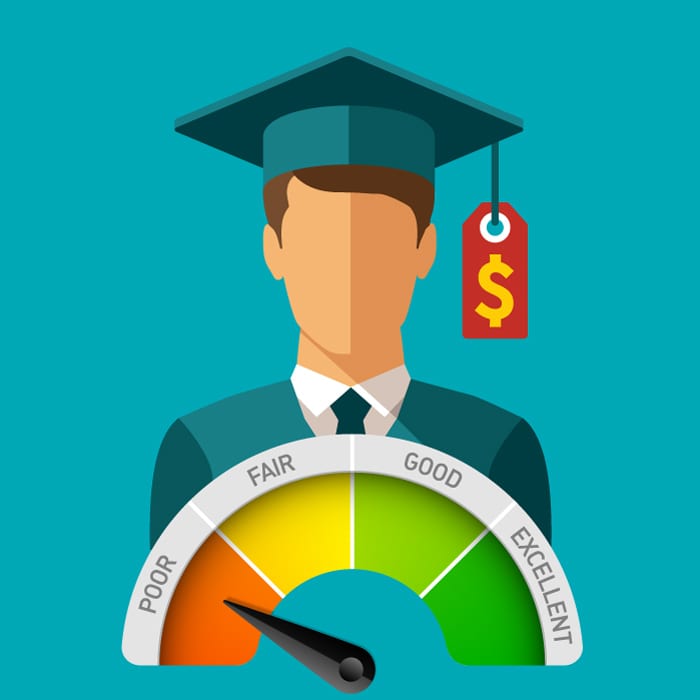A helpful guide to understanding Cash Loans and their features
Wiki Article
A Comprehensive Guide to Home Loans: Provider and Options Explained
Charting the globe of home mortgage can be intricate. Numerous choices exist, each with special attributes and implications for potential home owners. Understanding the differences in between government-backed and traditional loans is necessary. Additionally, the application process involves thorough paperwork and pre-approval actions that many ignore. As borrowers commence on their home-buying journey, understanding exactly how to handle these responsibilities efficiently might indicate the distinction in between economic security and challenge. What approaches can encourage them on this course?Recognizing Home Loans: Kinds and Terminology
Comprehending the different kinds of home finances and their connected terms is important for potential property owners, as it equips them with the expertise needed to make informed monetary choices. Home car loans can be extensively categorized right into adjustable-rate and fixed-rate home loans. Fixed-rate home mortgages preserve a constant rate of interest over the life of the funding, offering stability in regular monthly repayments. Installment Loans. On the other hand, adjustable-rate home loans feature rate of interest prices that may fluctuate after a first fixed period, possibly resulting in reduced preliminary settlements however boosted future costsAdded terms is essential for quality. Principal describes the car loan amount borrowed, while passion is the cost of loaning that amount. The regard to the car loan shows its duration, commonly varying from 15 to 30 years. Comprehending these fundamental ideas allows potential purchasers to navigate the complicated landscape of home financing, guaranteeing they choose the appropriate car loan alternative that lines up with their economic situation and long-lasting objectives.
Standard Lendings vs. Government-Backed Loans
A significant difference in home financing exists between traditional lendings and government-backed finances, each providing to different customer demands and conditions. Traditional lendings are not guaranteed or ensured by the federal government and usually need greater credit rating and deposits. They are frequently attracting borrowers with secure financial histories, as they might use affordable rates of interest and terms.On the other hand, government-backed loans, such as FHA, VA, and USDA loans, are developed to help specific groups of debtors, consisting of newbie buyers and professionals. Cash Loans. These lendings usually feature lower down repayment demands and more flexible credit history criteria, making them accessible to a wider series of individuals
Inevitably, the choice in between government-backed and standard finances hinges on the borrower's financial circumstance, lasting goals, and eligibility, making it important to carefully evaluate both alternatives prior to choosing.

The Function of Rate Of Interest in Home Funding
Rates of interest play a crucial function in home funding, influencing consumers' decisions between set and variable rate fundings. The selection between these options can significantly impact monthly payments, influencing overall price. Comprehending just how rate of interest function is important for anyone steering via the home financing procedure.Taken Care Of vs. Variable Prices
Buyers encounter a vital decision when picking between fixed and variable rates, as this option considerably impacts the price of funding gradually. Fixed-rate home loans offer stability, securing a passion price for the life of the car loan, which can be useful in an increasing rate of interest setting. This predictability allows homeowners to budget plan better. Conversely, variable-rate home loans, or variable-rate mortgages (ARMs), generally start with lower initial rates that can fluctuate based upon market conditions. While this might cause reduced initial payments, borrowers deal with the threat of boosted rates in the future. Eventually, the selection between variable and fixed rates depends on specific financial circumstances, threat tolerance, and expectations pertaining to future rate of interest trends.Influence On Month-to-month Payments
When reviewing home financing choices, the influence of interest rates on month-to-month repayments is a key element to consider. Rates of interest directly influence the overall expense of loaning, affecting just how much a customer will pay monthly. A reduced rates of interest lead to smaller monthly repayments, making homeownership much more affordable. On the other hand, higher rates can greatly increase monthly obligations, possibly stressing a house owner's budget. In addition, the funding term plays a crucial function; longer terms might spread payments out but can bring about paying even more passion gradually. Understanding how passion rates communicate with lending amounts and terms is crucial for debtors to make enlightened monetary choices and select a home mortgage that aligns with their long-lasting economic objectives.Mortgage Brokers vs. Direct Lenders: Which Is Right for You?
When taking into consideration a home loan, prospective consumers need to comprehend the distinct roles and duties of home loan brokers and straight loan providers. Each option presents its own advantages and disadvantages, which can significantly influence the overall expense of funding. An enlightened choice calls for cautious evaluation of these aspects to identify the most effective fit for individual demands.Duties and Obligations Specified
Maneuvering the intricacies of home financing calls for a clear understanding of the functions and duties of home loan brokers and straight loan providers. Mortgage brokers work as intermediaries, connecting borrowers with lending institutions. They assess a borrower's monetary circumstance, curate finance choices, and overview customers via the application process, typically leveraging numerous lender relationships to secure favorable terms. Alternatively, direct loan providers, such as banks and cooperative credit union, offer fundings directly to consumers. They manage the entire lending procedure, from application to funding, with a concentrate on their own items. Each choice offers distinctive opportunities for getting funding, making it essential for consumers to assess their choices and needs when determining in between engaging a mortgage broker or functioning with a straight lending institution.Advantages and disadvantages Contrast
Choosing between a home loan broker and a straight lender can greatly affect the home financing experience, as each option provides special advantages and disadvantages. Home mortgage brokers act as middlemans, providing accessibility to numerous lenders and potentially better prices, while streamlining the lending process. They might charge fees and count on compensation visit our website frameworks that can influence their referrals. On the various other hand, straight loan providers simplify the procedure by using in-house fundings, which can result in much faster authorizations and less issues. Conversely, they may have a limited option of products and much less versatility pertaining to prices. Inevitably, the decision rests on private choices, monetary scenarios, and the wanted level of assistance throughout the home mortgage trip.Expense Ramifications Assessed
While assessing the expense implications of home mortgage brokers versus direct loan providers, possible house owners have to think about numerous factors that can considerably affect their general expenses. Home loan brokers typically charge fees for their services, which can differ considerably, influencing the total loan price. Nevertheless, they typically have accessibility to a broader variety of lending items and affordable prices, possibly conserving consumers cash over time. Alternatively, direct loan providers might provide an extra straightforward procedure with perhaps reduced ahead of time prices, but their find out here now car loan choices might be limited. It is essential for house owners to contrast rates of interest, charges, and terms from both lending institutions and brokers, ensuring they make an educated choice that aligns with their monetary objectives and demands.The Home Mortgage Application Process: What to Expect

The home mortgage application procedure can often really feel frightening for lots of candidates. It generally begins with collecting necessary documents, including evidence of income, credit report, and individual identification. Lenders use this info to analyze the candidate's monetary security and determine finance eligibility.
Next, applicants send an official application, which may entail filling in on-line kinds or providing information face to face. During this stage, lending institutions evaluate numerous elements, such as debt-to-income proportion and credit report, to select funding terms.
When pre-approved, the lending institution will conduct a comprehensive assessment of the home to identify its value straightens with the loan quantity. This phase may also include added history checks.

After final authorizations and problems are satisfied, the lending is processed, bring about the closing stage. why not try here Recognizing each action empowers candidates, making the journey smoother and extra workable as they approach homeownership.
Tips for Handling Your Mortgage Properly
Efficiently steering the home financing application process is just the beginning of a liable financial trip. Managing a mortgage requires interest to numerous crucial methods. First, customers ought to establish a clear spending plan that suits monthly home loan repayments, real estate tax, and insurance coverage. Routinely reviewing this budget plan helps protect against overspending and guarantees prompt repayments.Furthermore, making extra settlements when possible can considerably decrease the financing principal and total passion paid gradually. Debtors need to likewise preserve open lines of interaction with their lender, especially in times of economic problem. This can lead to potential options such as financing modifications or refinancing choices.
Finally, it is suggested to keep an eye on credit history scores regularly. A good credit report can provide possibilities for far better finance terms in the future. Fast Cash. By adhering to these pointers, homeowners can browse their financing duties successfully, guaranteeing long-lasting monetary wellness and stability
Frequently Asked Concerns
What Are Closing Prices and How Are They Calculated?
Closing prices incorporate charges connected with wrapping up a mortgage, including appraisal, title insurance, and loan origination costs. These prices typically range from 2% to 5% of the car loan amount, differing based on area and loan provider.Can I Get Approved For a Home Mortgage With Bad Credit?
Yes, individuals with poor credit history can receive a home car loan, though alternatives may be restricted. Lenders typically require higher deposits or rate of interest, and checking out government-backed car loans might boost possibilities of approval.What Is Home mortgage Insurance coverage and When Is It Required?
Home mortgage insurance policy protects lending institutions versus default and is typically required when a customer makes a down settlement of less than 20%. It guarantees that lending institutions recoup losses if the consumer stops working to pay back the lending.Just How Does Refinancing Work and When Should I Consider It?
Refinancing involves replacing a present mortgage with a brand-new one, commonly to safeguard a reduced rate of interest price or adjustment finance terms. House owners need to think about refinancing when rates of interest go down considerably or their financial scenario enhances.What Occurs if I Miss a Home Loan Payment?
If a home loan settlement is missed, the loan provider generally analyzes late fees, reports the misbehavior to credit score bureaus, and may launch foreclosure procedures if repayments remain to be disregarded, eventually threatening the property owner's residential or commercial property.Fixed-rate mortgages maintain a consistent rate of interest rate over the life of the finance, giving security in month-to-month repayments. A substantial difference in home financing exists between government-backed financings and standard loans, each catering to different debtor demands and situations. In comparison, government-backed fundings, such as FHA, VA, and USDA car loans, are designed to assist particular teams of borrowers, including newbie buyers and experts. Interest prices play a vital duty in home financing, affecting debtors' choices between set and variable price fundings. Fixed-rate home mortgages supply security, locking in an interest price for the life of the lending, which can be advantageous in an increasing interest price setting.
Report this wiki page